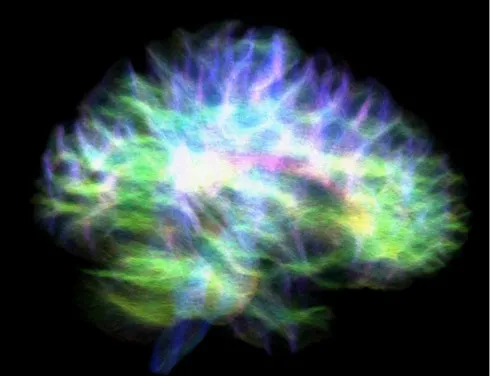 |
High-resolution image of the ‘wiring diagram’ of a human brain revealing connections to the hippocampusCredit: Marshall Dalton/ University of Sydney |
The most detailed map ever made of the communication links between the hippocampus – the brain’s memory control centre – and the rest of the brain has been created by Australian scientists. And it may change how we think about human memory.
We were surprised to find fewer connections between the hippocampus and frontal cortical areas, and more connections with early visual processing areas than we expected to see. Although, this makes sense considering the hippocampus plays an important role not only in memory but also imagination and our ability to construct mental images in our mind’s eye.Dr Marshall Dalton, a Research Fellow in the School of Psychology at the University of Sydney.
To generate their map, the team – led by Dr Dalton and including Dr Arkiev D’Souza, Dr Jinglei Lv and Professor Fernando Calamante from the University of Sydney’s Brain and Mind Centre – relied on MRI scans from a neuroimaging database created for the Human Connectome Project (HCP), a research consortium led by the U.S. National Institutes of Health.
They processed the existing HCP data using tailored techniques that they developed. This allowed them to follow the connections from all corners of the brain to their termination points in the hippocampus – something that had never been accomplished before in the human brain.
Although we have achieved this high-resolution mapping of the human hippocampus, the tract tracing method conducted on non-human primates – which can see down to the cellular level – is able to see more connections than can be discerned with an MRI. Or it could be that the human hippocampus really does have a smaller number of connections with frontal areas than we expect, and greater connectivity with visual areas of the brain. As the neocortex expanded, perhaps humans evolved different patterns of connectivity to facilitate human-specific memory and visualisation functions which, in turn, may underpin human creativity.Dr Dalton.
It’s a bit of a puzzle – we just don’t know. But we love puzzles and will keep investigating.Dr Dalton








